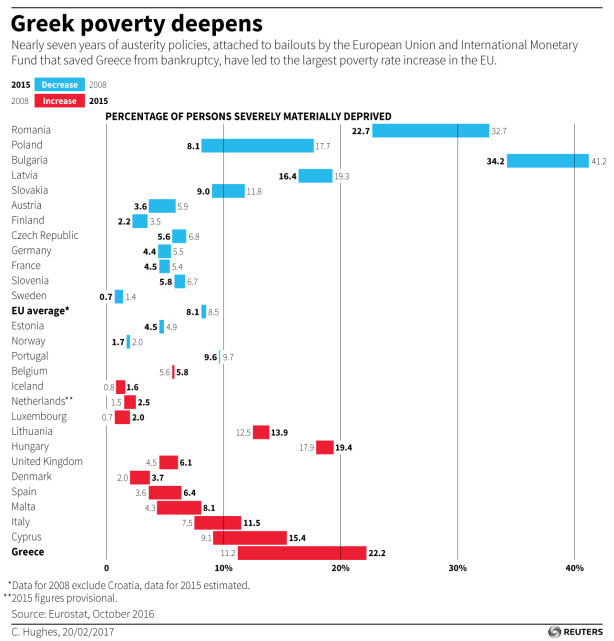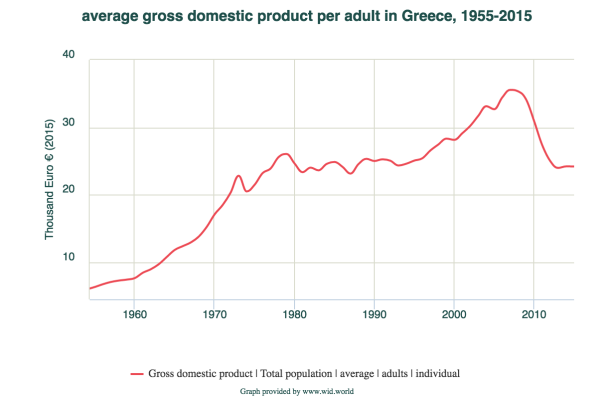From David Ruccio Greece is a perfect example of how to turn a bad economic situation into something even worse. As Reuters reports, Rescue funds from the European Union and International Monetary Fund saved Greece from bankruptcy, but the austerity and reform policies the lenders attached as conditions have helped to turn recession into a depression. As a result, the poverty rate in Greece almost doubled (between 2008 and 2015), rising from 11.2 percent to 22.2 percent. And average (per adult) GDP has fallen below what it was three decades ago. Meanwhile, IMF and European institutions are demanding further austerity measures (equivalent to 2 percent of gross domestic product) before agreeing on a new deal to aid Greece.
Topics:
David F. Ruccio considers the following as important: Uncategorized
This could be interesting, too:
tom writes The Ukraine war and Europe’s deepening march of folly
Stavros Mavroudeas writes CfP of Marxist Macroeconomic Modelling workgroup – 18th WAPE Forum, Istanbul August 6-8, 2025
Lars Pålsson Syll writes The pretence-of-knowledge syndrome
Dean Baker writes Crypto and Donald Trump’s strategic baseball card reserve
from David Ruccio

Greece is a perfect example of how to turn a bad economic situation into something even worse. As Reuters reports,
Rescue funds from the European Union and International Monetary Fund saved Greece from bankruptcy, but the austerity and reform policies the lenders attached as conditions have helped to turn recession into a depression.
As a result, the poverty rate in Greece almost doubled (between 2008 and 2015), rising from 11.2 percent to 22.2 percent.

And average (per adult) GDP has fallen below what it was three decades ago.
Meanwhile, IMF and European institutions are demanding further austerity measures (equivalent to 2 percent of gross domestic product) before agreeing on a new deal to aid Greece.
